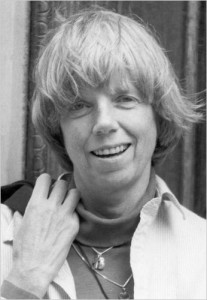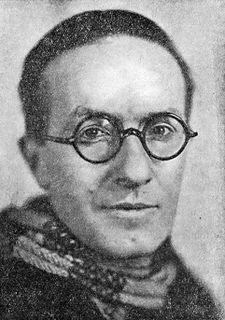A Quote by Aleister Crowley
The man who denounces life merely defines himself as the man who is unequal to it.
Related Quotes
That man can destroy life is just as miraculous a feat as that he can create it, for life is the miracle, the inexplicable. In the act of destruction, man sets himself above life; he transcends himself as a creature. Thus, the ultimate choice for a man, inasmuch as he is driven to transcend himself, is to create or to destroy, to love or to hate.
In Utopia, where every man has a right to everything, they all know that if care is taken to keep the public stores full, no private man can want anything; for among them there is no unequal distribution, so that no man is poor, none in necessity; and though no man has anything, yet they are all rich; for what can make a man so rich as to lead a serene and cheerful life, free from anxieties.
Man is always something more than what he knows of himself. He is not what he is simply once and for all, but is a process; he is not merely an extant life, but is, within that life, endowed with possibilities through the freedom he possesses to make of himself what he will by the activities on which he decides.
What is meant here by saying that existence precedes essence? It means first of all, man exists, turns up, appears on the scene, and, only afterwards, defines himself. If man, as the existentialist conceives him, is indefinable, it is because at first he is nothing. Only afterward will he be something, and he himself will have made what he will be.
The glory of God is the living man, but the life of man is the vision of God', says St. Irenaeus, getting to the heart of what happens when man meets God on the mountain in the wilderness. Ultimately, it is the very life of man, man himself as living righteously, that is the true worship of God, but life only becomes real life when it receives its form from looking toward God.
Is not life exactly what it ought to be, in a certain sense? Isn't it only the naive who find all of this baffling? If you've a notion of what man's heart is, wouldn't you say that maybe the whole effort of man on earth to build a civilization is simply man's frantic and frightened attempt to hide himself from himself?
I believe that the unity of man as opposed to other living things derives from the fact that man is the conscious life of himself. Man is conscious of himself, of his future, which is
death, of his smallness, of his impotence; he is aware of others as others; man is in nature, subject to its laws even if he transcends it with his thought.



































